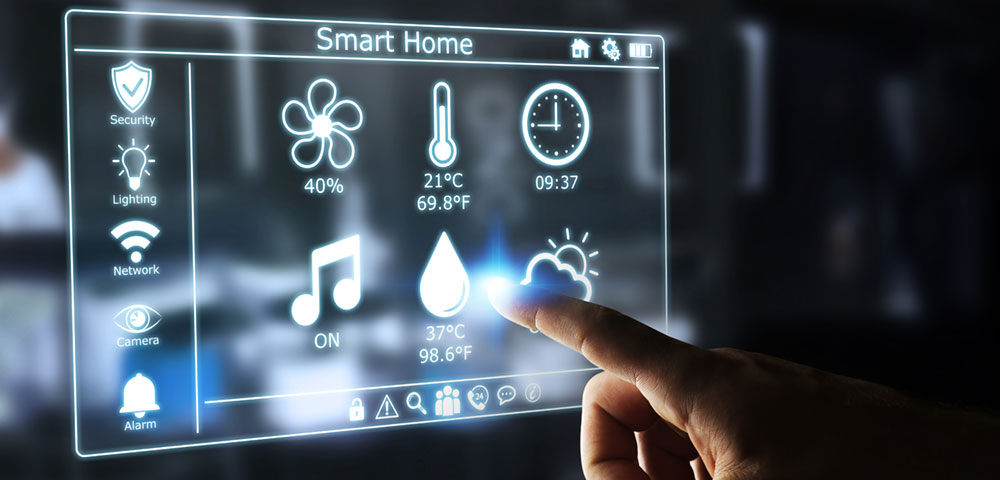
Harnessing AI and IoT for Smart Home Automation: A New Era of Living
Share
In today's fast-paced technological world, the combination of AI and IoT stands at the forefront of achieving advanced home automation. This synergy between artificial intelligence and the Internet of Things is revolutionizing our interactions with our living environments, making them more intelligent, responsive, and user-friendly. For tech enthusiasts and professionals alike, a deep understanding of these technologies is crucial for unlocking their full potential.

The Fusion of AI and IoT
The unification of AI and IoT is central to crafting a seamless smart home experience. While IoT facilitates communication between devices, AI interprets this information to make informed decisions. This integrated approach allows for features like adjusting climate settings based on personal preferences, managing home security, and even scheduling your morning coffee.
AI's Role in Enhancing Home IoT
AI capabilities significantly boost IoT performance in homes by analyzing extensive datasets gathered from diverse smart devices. This analysis aids in predicting user tendencies and optimizing device functionality. For example, AI learns your everyday habits to automate lighting and temperature adjustments, ensuring you enjoy both comfort and energy efficiency.
Seamless Integration of AI with IoT Devices
The incorporation of AI into IoT gadgets has resulted in the creation of smarter and more intuitive home automation systems. Modern smart speakers, thermostats, and lighting solutions now utilize AI technologies to interpret voice commands and adapt to user preferences over time. This enhanced integration not only amplifies the capabilities of these devices but also nurtures a more harmonious smart home ecosystem.
Advantages of AI and IoT in Home Automation
The foremost benefit of merging AI and IoT in home automation is improved efficiency. Automated systems can curtail energy usage by fine-tuning resource consumption. For instance, AI-enabled thermostats can modify heating and cooling patterns according to occupancy behavior, significantly lowering energy costs.
Additionally, these innovations offer heightened security features. Intelligent security systems can identify familiar individuals while spotting unusual activities, sending alerts to homeowners and authorities if needed. This proactive security strategy provides a sense of safety and reassurance for residents.
Challenges and Factors to Consider
Despite the significant advantages brought by AI and IoT in home automation, several challenges must be addressed. Privacy and data security remain paramount concerns, as these systems often process vast quantities of personal information. It is vital for developers and users alike to integrate stringent security practices to safeguard this data.
Moreover, integrating multiple devices and platforms can prove to be complicated. Users must ensure device compatibility and may need technical skills for effective setup and maintenance of these systems.
Emerging Trends in Home Automation
The future of home automation is poised for further innovations driven by advancements in AI and IoT. We can anticipate the emergence of sophisticated machine learning algorithms, empowering devices to make even more intelligent choices. Additionally, the rise of edge computing will facilitate quicker data processing and responses, enriching the user experience.
As sustainability becomes more important, the development of eco-friendly smart home technologies will gain traction. Expect to see an increase in energy-efficient devices that align with global efforts to minimize carbon footprints. For more on eco-friendly solutions, read about DIY sustainable automation or delve into ROI on sustainable automation.
Conclusion
The amalgamation of AI and IoT for effective home automation is changing the way we engage with our residences. By enhancing convenience, security, and energy efficacy, these technologies are paving the path towards smarter living. As we embrace these advancements, it is crucial to confront the accompanying challenges and ethical factors, ensuring technology enriches our lives without compromising our privacy and security.

Frequently Asked Questions
What is AI's function in home automation?
AI plays a vital role in home automation by analyzing data from IoT devices to make wise decisions. It facilitates tailored and energy-efficient solutions by understanding user habits and preferences.
In what ways does IoT enhance home automation?
IoT improves home automation by allowing devices to communicate with one another, creating a connected ecosystem. This inter-device communication enables real-time monitoring, remote control, and automation of various home activities.
Are there privacy issues connected to AI and IoT in homes?
Indeed, privacy is a major concern as these systems gather and handle personal data. Implementing robust security practices is critical to secure this information and maintain user confidence.
